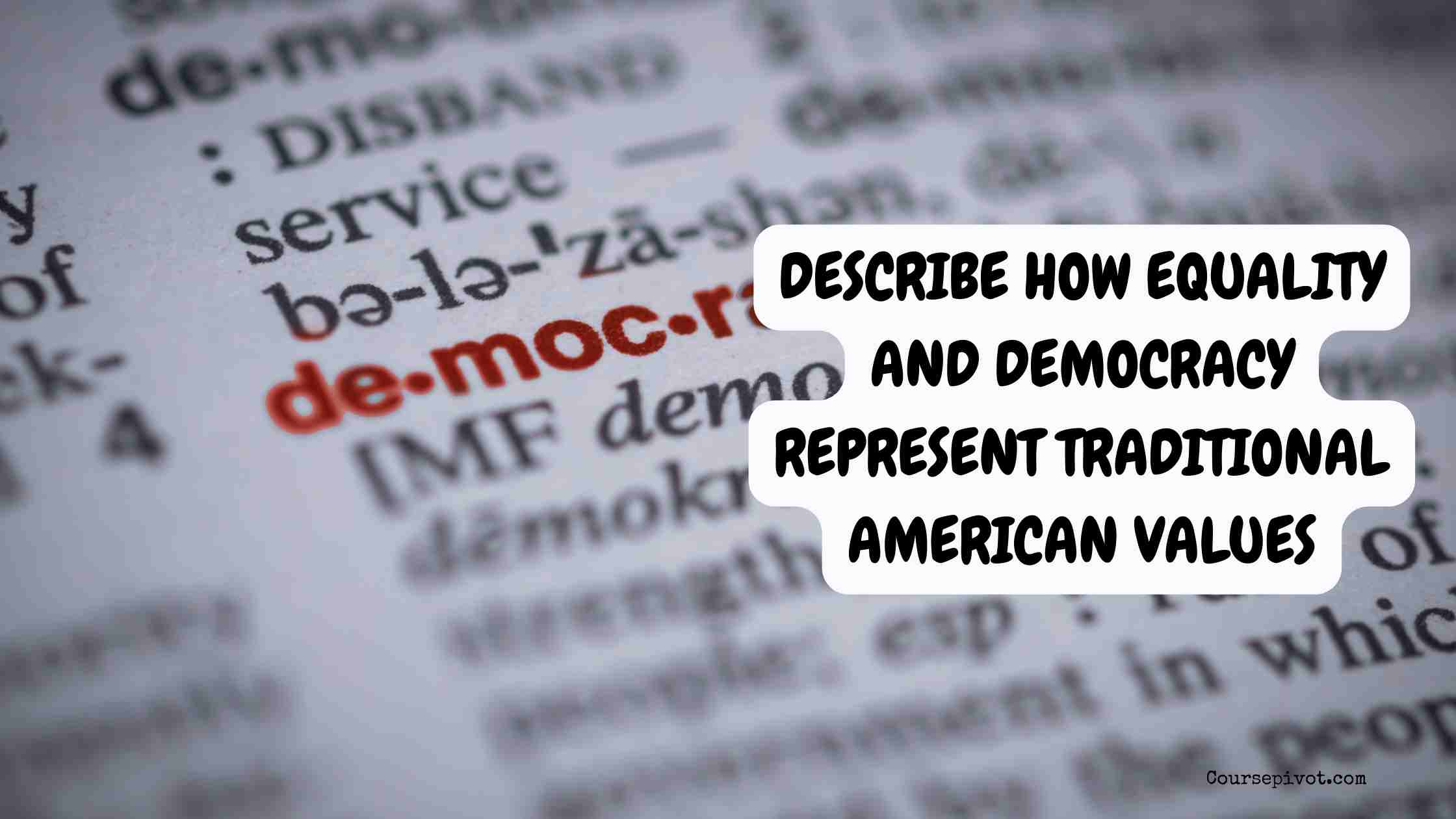
How Equality and Democracy Represent Traditional American Values
When I reflect on the core values that define America, two principles stand out clearly: equality and democracy. These values are not just political buzzwords; they are the very foundation upon which this nation was built. To me, understanding how equality and democracy represent traditional American values means appreciating their deep roots in our history and seeing how they continue to shape American life today.
Table of Contents
Why do we, as Americans, hold equality and democracy so dearly? What makes these ideals traditional values rather than fleeting ideals? The answer lies in how these principles have guided the nation from its earliest days and remain central to its identity. They reflect the belief that everyone deserves equal treatment under the law and that every person’s voice matters in shaping the future.
The Meaning of Equality in Traditional American Values
The idea of equality is deeply woven into American history. When I think of equality as a traditional American value, I recall the famous words from the Declaration of Independence: “all men are created equal.” This statement was revolutionary at the time. It challenged centuries of monarchies and class systems that said some people were born superior to others.
Read our blog on Why African American Migration Increased from the North to the South in the 1990s
Equality in America means more than just legal rights. It means striving to ensure that everyone—regardless of race, gender, religion, or background—has a fair chance to succeed. This is why I believe equality is a living value; it has grown through hard struggles like the abolition of slavery, women’s fight for the vote, and civil rights movements. These historical moments show how equality, as a traditional American value, has continuously pushed the nation to become fairer and more inclusive.
Democracy: The Voice That Defines America
Democracy is the other cornerstone of American values. It’s the system that puts power in the hands of the people. I see democracy as a promise: that citizens—not kings or elites—have the right and responsibility to govern themselves.
In my experience, democracy is not just about voting once every few years. It’s about being an active participant in the community and holding leaders accountable. Democracy, as a traditional American value, means that everyone should have a chance to be heard, to influence decisions, and to shape the laws that affect their lives.
When I reflect on democracy’s place in traditional American values, I think of the Constitution and the Bill of Rights, which guarantee these rights. Democracy ensures that government serves the people’s will and protects their freedoms.
How Equality and Democracy Work Together in American Tradition
Equality and democracy are deeply connected. In my view, democracy cannot exist without equality because the whole idea depends on equal participation and representation. Likewise, equality needs democracy to ensure that equal rights are respected and enforced.
Read our blog on 3 Reasons Why America Lost the Vietnam War
Together, these values create a vision for America as a society where fairness, justice, and freedom thrive. They influence how Americans think about themselves and each other—encouraging respect for diversity, equal opportunity, and mutual responsibility.
Here are some ways equality and democracy show up in everyday American life:
- Laws that protect civil rights and prohibit discrimination.
- Free and fair elections where all eligible citizens can vote.
- Social movements pushing for inclusion and justice.
- Civic education encouraging citizens to engage in democracy.
- Community efforts to break down barriers based on race, gender, or class.
Why These Traditional Values Still Matter Today
Equality and democracy remain essential traditional American values because they are constantly tested and redefined. Challenges such as voter suppression, economic inequality, and social divisions remind me that these values require ongoing effort.
Why do equality and democracy matter so much today? Because they shape the promise of America—the promise that everyone can thrive and have a say in the future. They call on us to live up to the ideals set forth by the founders and expanded by generations of Americans.
When I see protests for justice or campaigns for voting rights, I see people defending the very heart of America’s traditional values. These actions confirm that equality and democracy are not just historical ideas but active principles guiding us forward.
Reflecting on Equality and Democracy as Traditional American Values
What makes equality and democracy true traditional American values? It’s their deep roots in the nation’s history and their lasting influence on American identity. From the bold declaration that all men are created equal to the democratic systems that empower citizens, these values define what it means to be American.
Equality as a traditional value teaches us that fairness and justice are not privileges for a few but rights for all. Democracy reminds us that power belongs to the people, and with that power comes responsibility.
Read our blog on 20 Most Common Reasons for Teenage Breakups in America
I believe these values have shaped America’s story in profound ways—sometimes imperfectly, but always moving forward. They encourage us to question, challenge, and improve our society. Equality and democracy push us to envision a nation where everyone has a voice, and every person matters.
In the end, these traditional American values are more than ideas; they are commitments. They demand action, reflection, and courage. They remind us that being American means believing in a shared future grounded in fairness and participation.
As we live out these values today, we keep alive the promise that America can be, and should be, a land where equality and democracy are not just ideals, but realities for everyone.
Cite this article
You can copy and paste your preferred citation format below.
Martin, L. & Arquette, E.. (2025, May 26). How Equality and Democracy Represent Traditional American Values. Coursepivot.com. https://coursepivot.com/blog/describe-how-equality-and-democracy-represent-traditional-american-values/



